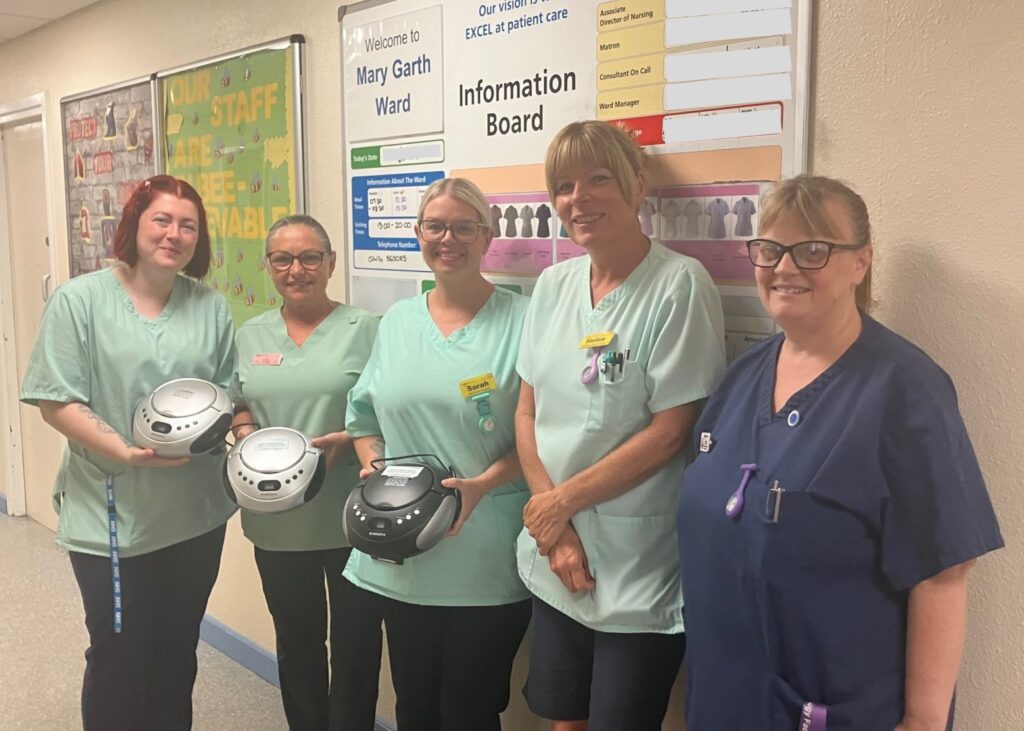The Challenge
Some patients admitted to the Mary Garth and Adam Bede gastroenterology wards at George Eliot Hospital—often elderly and sometimes living with associated health conditions such as dementia—can experience restlessness, agitation, and emotional distress during their hospital stay. These symptoms are not only uncomfortable but can also hinder recovery and reduce overall patient satisfaction.
Research has shown that music can be an effective, low-cost intervention for reducing these symptoms by helping to calm, distract, and emotionally engage patients. With this evidence in mind, healthcare professionals on the wards began exploring ways to harness music as a therapeutic tool to improve patient experience and well-being during inpatient care.
The Solution
Four staff members from the Shared Decision Making Council—Charlotte Biddle, Jo King, Helen Rodgers, and Sarah Haynes—collaborated to develop a practical approach based on the research. With the support of Practice Development Lead Dawn Cuddy, they submitted a grant application to George Eliot Hospital Charity to fund the purchase of portable music players.
Once approved, the devices were distributed across the wards and integrated into daily routines. Staff tailored music to individual patient preferences where possible, and on the Adam Bede ward, a “Get Moving” campaign was launched at 2 p.m. each day, using upbeat music to encourage light movement or gentle exercise in or around patients’ beds. This combined the calming benefits of music with gentle physical activity to further enhance mood and engagement.

The Results
The impact was clear both through verbal patient feedback and visible changes in behaviour. Patients appeared calmer, less agitated, and more willing to engage, while many reported feeling happier, more relaxed, and more comfortable during their stay. Staff also noticed a lift in the overall ward atmosphere, with music creating a more positive and energised environment for everyone.
These outcomes closely mirror the benefits highlighted in research, which shows that music can reduce restlessness, agitation, and emotional distress. By translating this evidence into daily practice, the team not only improved the emotional well-being of patients but also created a more supportive and uplifting environment for recovery.
The Shared Decision Making Council’s innovative and compassionate approach has made a lasting difference, and George Eliot Hospital Charity was proud to support the purchase that contributed to such meaningful change.
